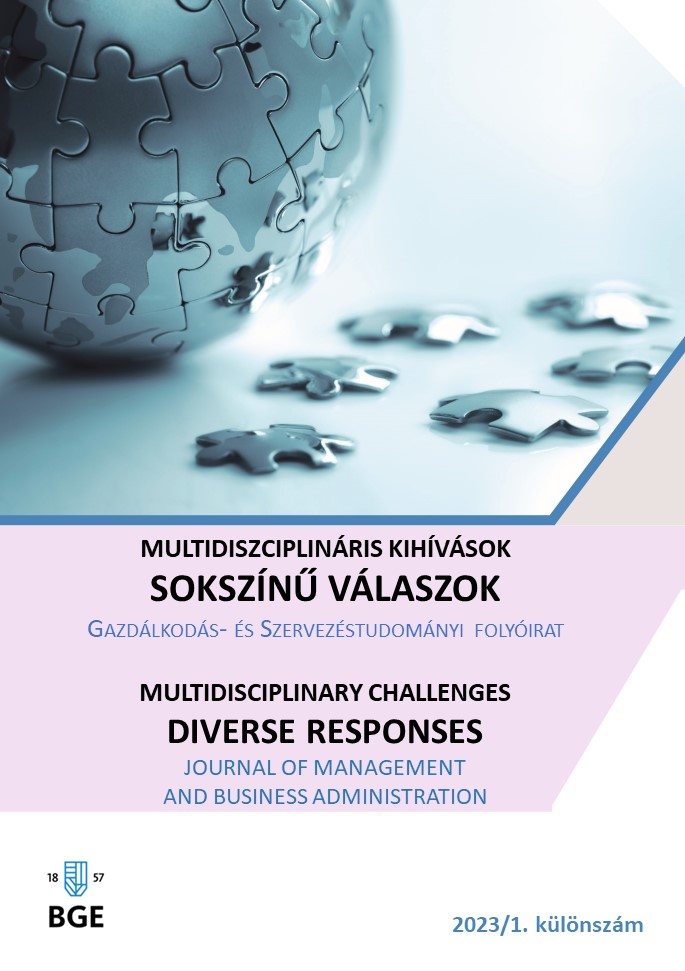Disszonáns örökségek
Absztrakt
Interdiszciplináris írásomban az úgynevezett disszonáns vagy vitatható örökségek tanulmányozhatóságának elméleti kereteit vizsgálom. Ahhoz, hogy az egymásnak ellentmondó tartalmú helyek, hagyományok, vagy tárgyak jelentéseit ki lehessen bontani, az identitáselméletek, az emlékezetelméletek és a helyelméletek, különösen az un. elképzelt helyek elmélete felől érdemes közelíteni az érzelmek pszichológiai vizsgálatának keretében a látogatók és a helyi közösségek tekintetében a multidimenzionális vs. eurocentrikus történettudományi megfontolásokat figyelembe véve.
Hivatkozások
Antal, E., 2018. Limes Székelyföldön: lehetünk-e büszkék a római örökségre? https://liget.ro/eletmod/limes-szekelyfoldon-buszkek-lehetunk-e-a-romai-oroksegre#
Assmann, J., 1992. Das Kulturelle Gedächtnis.Schrift,Erinnerung und politische Identität in frühen Hochkulturen. Verlag C.H.Beck, München https://www.jstor.org/stable/j.ctv1168jkj
Bagnall, G., 2003. Performance and performativity at heritage sites. Museum and Society, 1(2), 87-103. https://doi.org/10.29311/mas.v1i2.17
Bonardi, C. & Roussiau, N., 1999. Les représentations sociales. Paris: Dunod.
Bond, G. C. & Gilliam, A., 1994. Social construction of the past: Representation as power, ed. George Clement Bond and Angela Gilliam. London: Routledge https://doi.org/10.4324/9780203754412
Braudel, F., 1949. La Méditerranée et le Monde Méditerranéen à l’époque de Philippe II. https://doi.org/10.2307/1790692
Bruner, E. M. & Gorfain, P., 1983. Dialogic narration and the paradoxes of Masada. In: Bruner, E. M. (ed.), Text, play, and story: The construction and reconstruction of self and society, pp. 56–79. Washington, DC: American Ethnological Society. https://doi.org/10.1525/ae.1985.12.2.02a00150
Kenneth, C., 1969. Civilization: Personal View 1969
Campbell, S., 2006. Our Faithfulness to the Past: Reconstructing Memory Value. Philosophical Psychology, 19(3), 361-380. https://doi.org/10.1080/09515080600690573
Duncan, J. & Gregory, D. (eds.), 1999. Writes of Passage. Reading Travel Writing. Routledge, London and New York. https://doi.org/10.4324/9780203054543
Frankopan, P., 2015. Silkroads Vintage. Reprint edition. https://doi.org/10.14795/j.v5i3.342
Graburn, N. H. H. & Barthel-Bouchier, D., 2001. Relocating the tourist. International Sociology, 16, 147–158. https://doi.org/10.1177/0268580901016002001
Gregory, D., 1994. Geographical Imaginations. Sage Books. https://doi.org/10.4135/9781446213742.n20
Haraway, D., 1984. Teddy bear patriarchy: Taxidermy in the garden of Eden, New York City, pp. 1908–1936. https://doi.org/10.21825/documenta.81903
Harvey, D., 1990. Between Space and Time:Reflections ont he Geographical Imagination.in.Annals of the Association of American Geographers vil. 80(3), 418-434. https://doi.org/10.4324/9781315832555-32
Hobsbawm, E., 1983. Introduction: Inventing traditions. In: Hobsbawm, E. & Ranger, T. (eds.) The invention of tradition, pp. 1–14. Cambridge, MA: Cambridge University Press. https://doi.org/10.1017/cbo9781107295636.001
Lowenthal, D., 1985. The Past is a Foreign Country. Cambridge: Cambridge University Press. https://doi.org/10.1017/cbo9781139024884
MacKenzie, R. & Stone, P., 1990. Introduction: The concept of the excluded past. In: Stone, P. & MacKenzie, R. (eds.) The excluded past. Archaeology in education, pp. 1–14. One World Archaeology. London: Unwin Hyman. https://doi.org/10.1525/aa.1991.93.4.02a00540
Morton, A., 2013. Emotion and Imagination. Cambridge: Polity. https://doi.org/10.1093/analys/anu070
Morgan, K., 2000. George Wasington and the Problem of Slavery. Journal of American Studies 34(2) https://doi.org/10.1017/s0021875899006398
Moscovici, S., 1984. The Phenomenon of Social Representations. In: Farr, R. M. & Moscovici, S. (eds.) Social Representations. Blackwell Publishers
Opoku, K., 2008. Ten essential points on the continued detention of the Benin bronzes by European and American museums. http://www.modernghana.com/news/184756/50/ten-essential-points-onthe-continued-detention-of.html.
Pine, J. & Gilmore, J. H., 1999. Experience Economy: past, present and future. In: Sundbo, J. & Sørensen, F. (eds.) Handbook on the Experience Economy. Harvard Business School Press. pp. 21-44. https://doi.org/10.4337/9781781004227.00007
Said, E., 1978. Orientalism. Pantheon Books. https://doi.org/10.1017/s0026318400007185
Said, E., 2000. Invention, Memory, and place. Critical Inquiry 26(2). https://doi.org/10.1086/448963
Scott, M., 2016. Ancient worlds: a global history of antiquity. Hachette UK. https://doi.org/10.1353/clw.2018.0048
Sevcenko, L., 2002. Activating the past for civic action: the international coalition of historic site museums of conscience. The George Wright Forum, 19(4) 55–64. http://www.jstor.org/stable/43597827
Silverman, H. & Ruggles, D. F., 2007. Cultural Heritage and Human Rights. In: Silverman, H., Ruggles, D.F. (eds.), Cultural Heritage and Human Rights. Springer, New York, NY. https://doi.org/10.1007/978-0-387-71313-7_1
Smith, L., 2014. Visitor Emotion, Affect and Registers of Engagement at Museums and Heritage Sites. Conservational Science in Cultural Heritage 14(2) Special Issue for International Conference on „Critical Heritage in Cross-Cultural Perspectives” https://doi.org/10.1007/978-0-387-71313-7_1
Smith, L. & Campbell, G., 2015. The elephant in the room: Heritage, affect, and emotion. A companion to heritage studies, 443-460. https://doi.org/10.1002/9781118486634.ch30
Tilden, F., 1957. Interpreting our Heritage: Principles and Practices for Visitor Services in Parks, Museums, and Historic Places. Chapel Hill, N.C., University of North Carolina Press. http://www.jstor.org/stable/23517079
Uzzell, D., 1998. Interpreting our heritage: a theoretical interpretation, in: Contemporary Issues in Heritage and Environmental Interpretation, D. Uzzell and R. Ballantyne (eds.). The Stationery Office, London, pp. 11–25.
Wertsch, J. V., 2002. Voices of Collective Remembering. Cambridge: Cambridge University. https://doi.org/10.1017/cbo9780511613715
Wohlers, L., 2015. Informális tanulás. KÖME kiadás


























